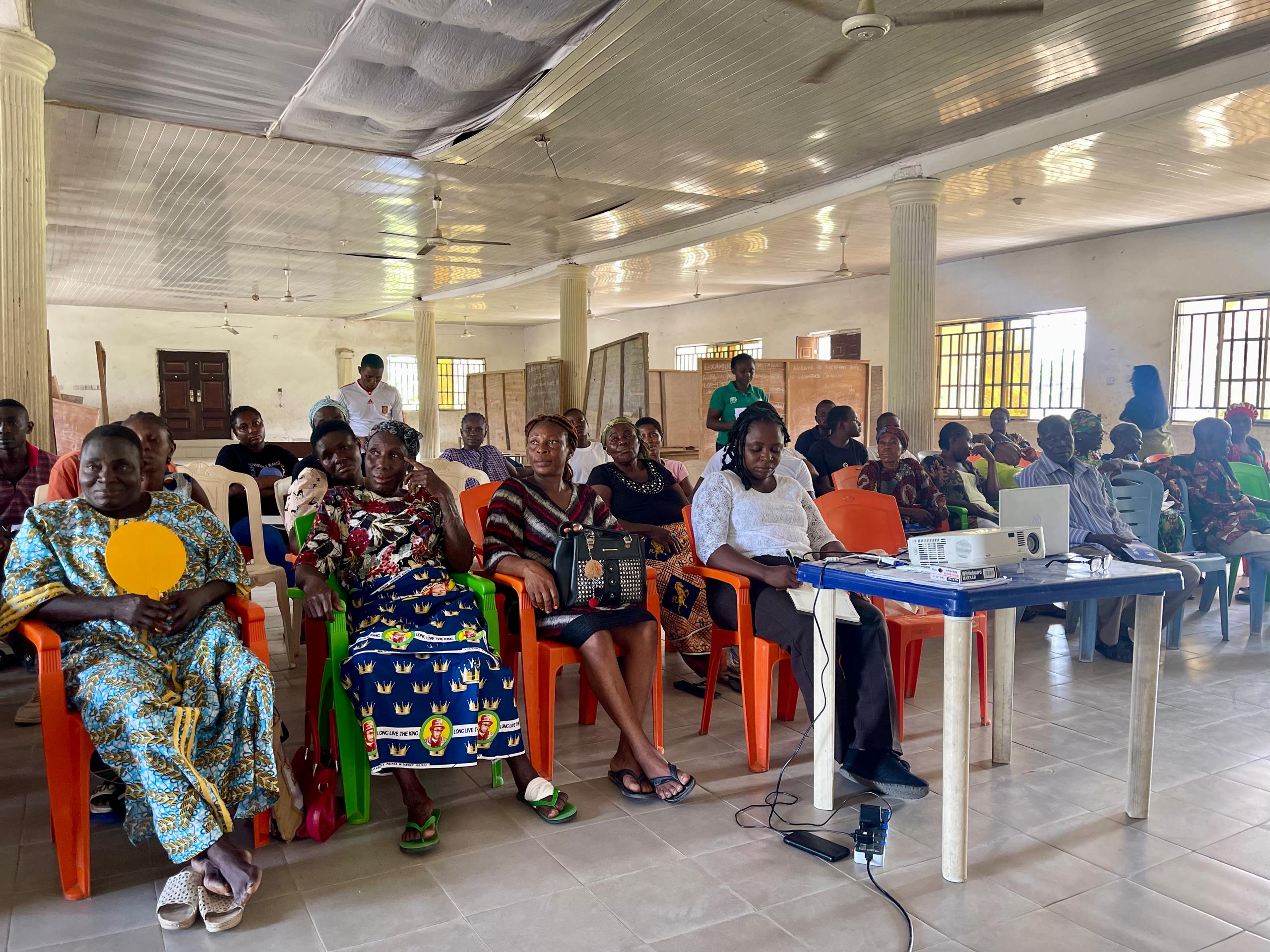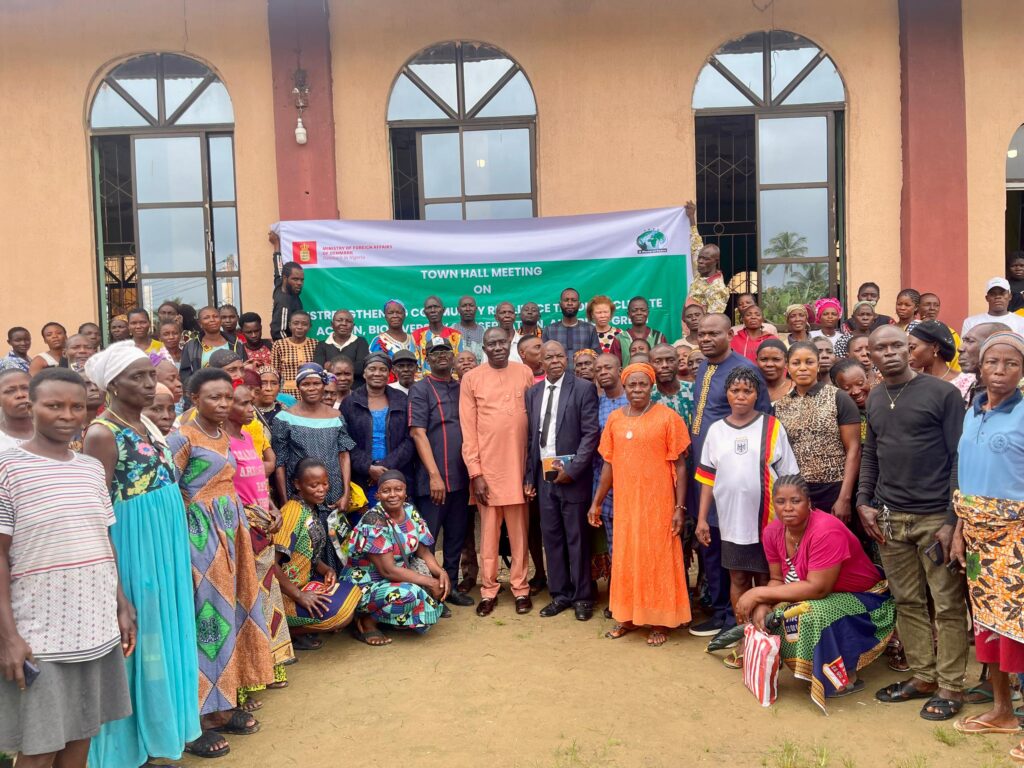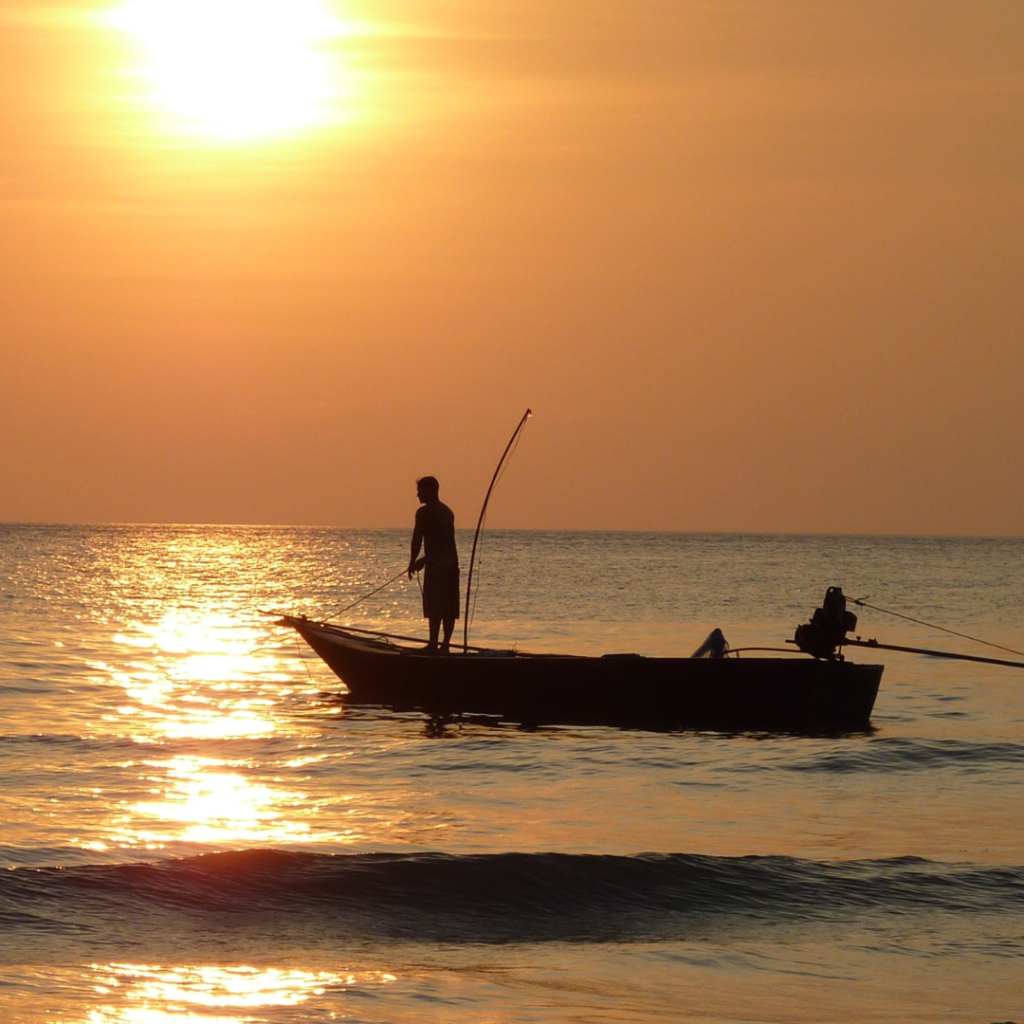The climate resilience training for farmers and fisherfolks in the communities of Ayama, Ogboloma, and Okotiama in Bayelsa State witnessed a successful second day as participants engaged in practical sessions covering important themes in biodiversity management, conservation, renewable energy, sustainable aquaculture, and enterprise development for the green and blue economy. This was part of a concerted effort to strengthen local communities against the mounting challenges posed by climate change.
Opening the day’s sessions, AAPW Program Manager, Mr. Utavie Jeremiah, led a thorough recap of Day 1, inviting participants to share their thoughts on various topics, including climate change, biodiversity management, and renewable energy. The diverse backgrounds of attendees enriched the discussions, with each sharing insights into how environmental shifts and resource depletion have impacted their communities.
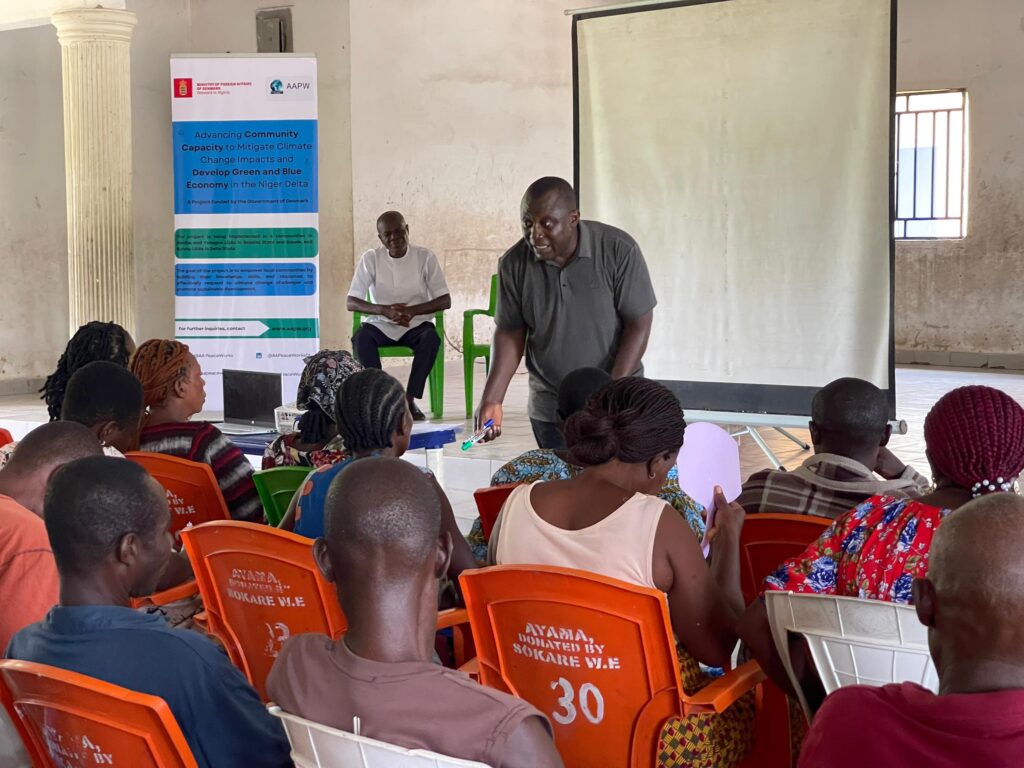
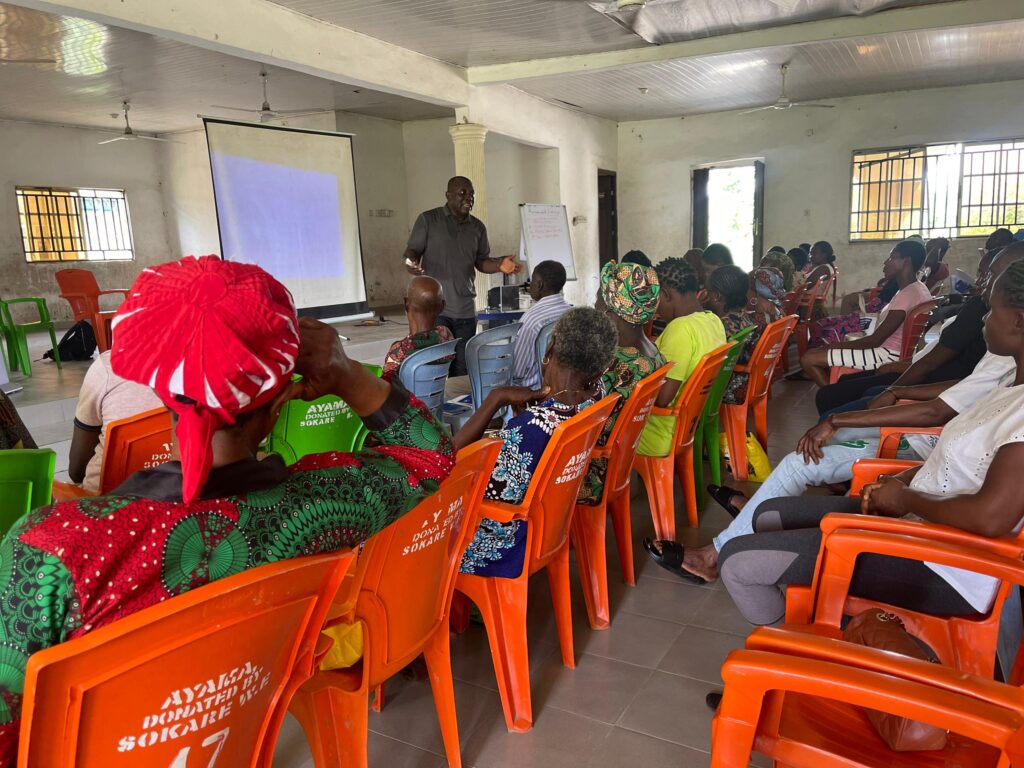
Mr Utavie Jeremiah leading the recap of Day 1
Participants reflected on the pressing need for biodiversity conservation and adaptation measures to preserve their environment and livelihoods. Dr. Authority Benson, a lecturer in environmental management from Niger Delta University, led the day’s biodiversity management sessions. He guided participants through understanding different categories of biodiversity critical to their environment, such as terrestrial, freshwater, and marine ecosystems. Using tangible examples from the region, he identified local species like snakes, millipedes, iguanas, crocodiles, catfish, electric fish, bonga fish, and periwinkles, which participants related to easily.
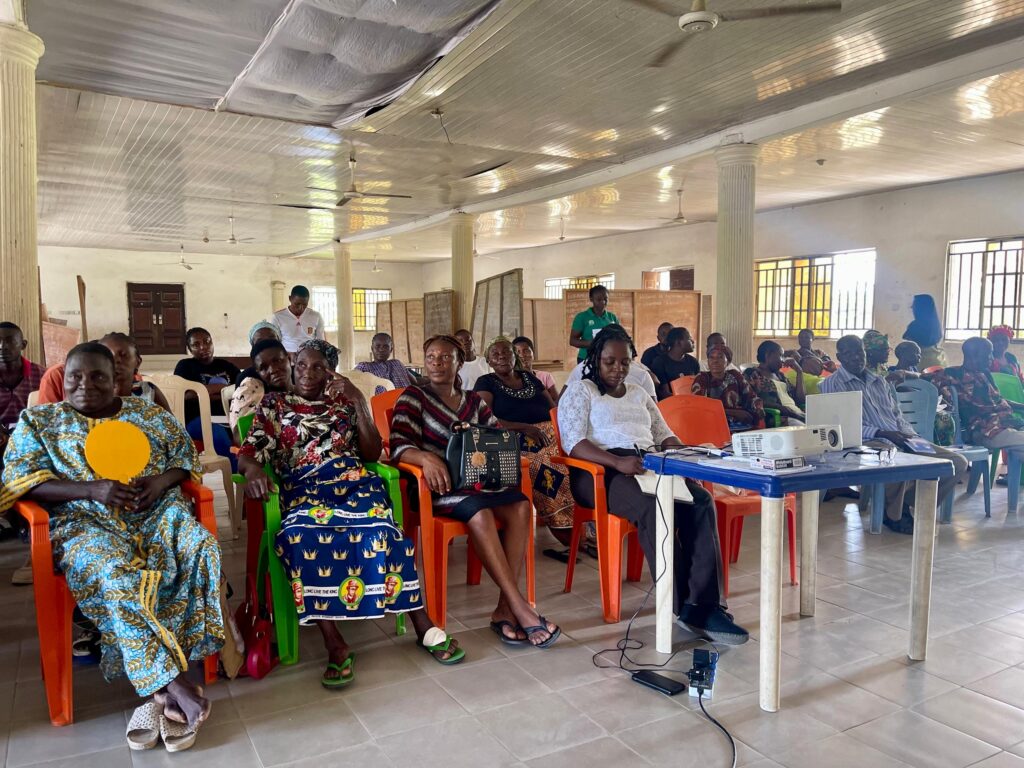
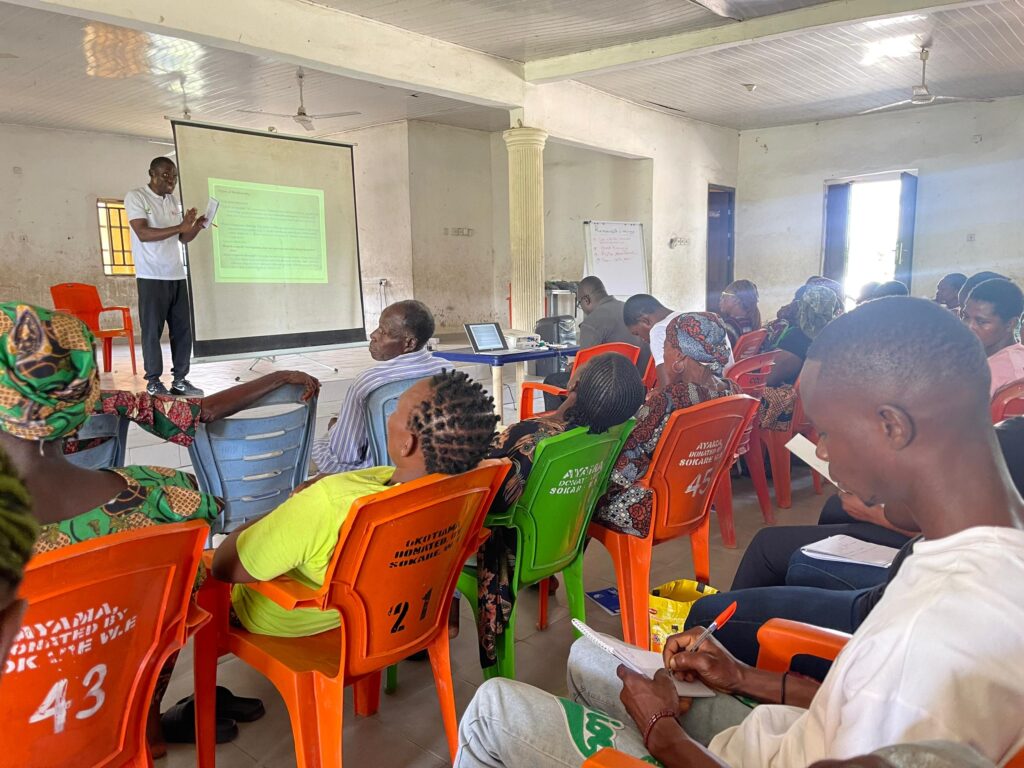
Dr. Benson also delved into the pressing need for tree planting and biodiversity documentation, underscoring how inventory efforts and law enforcement can preserve these vital ecosystems. Waste and pollution, he stressed, are central challenges, leading him to introduce waste classification and methods for effective waste management. His session wrapped up with a powerful call to action: the reduction of single-use plastics, which he highlighted as a significant pollutant affecting terrestrial and marine life.
Agriculturist and facilitator Kingdom Obuza brought a wealth of knowledge on sustainable aquaculture and agribusiness. His sessions were tailored to equip participants with actionable skills in enterprise development, agropreneurship, and sustainable business planning.
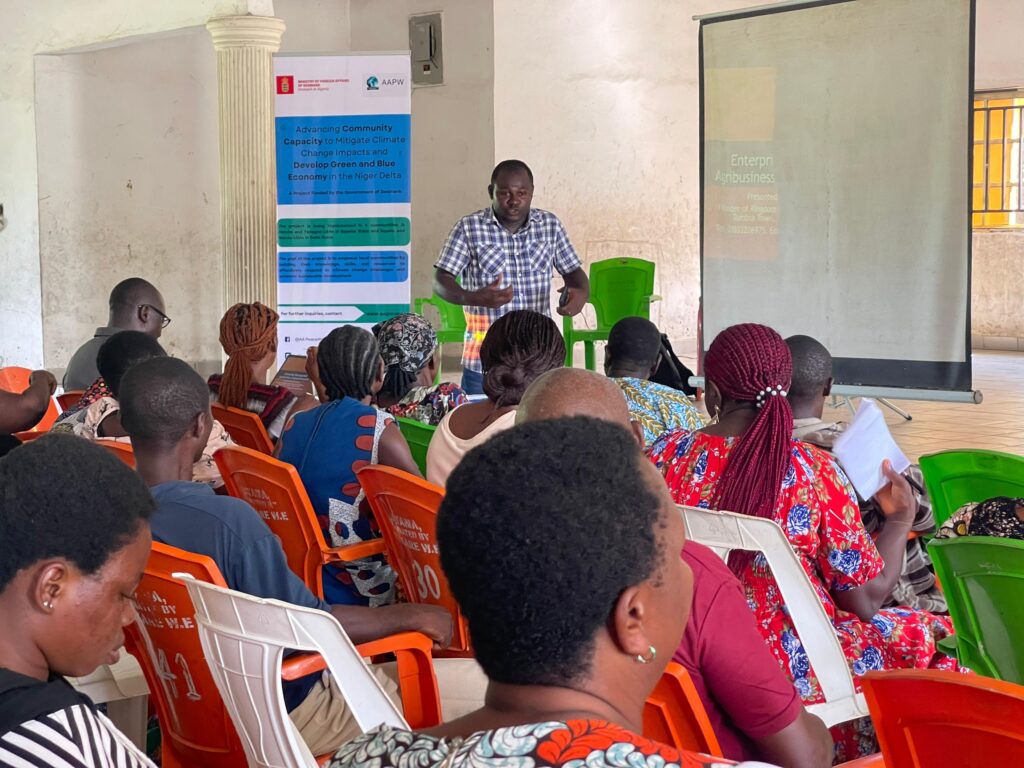
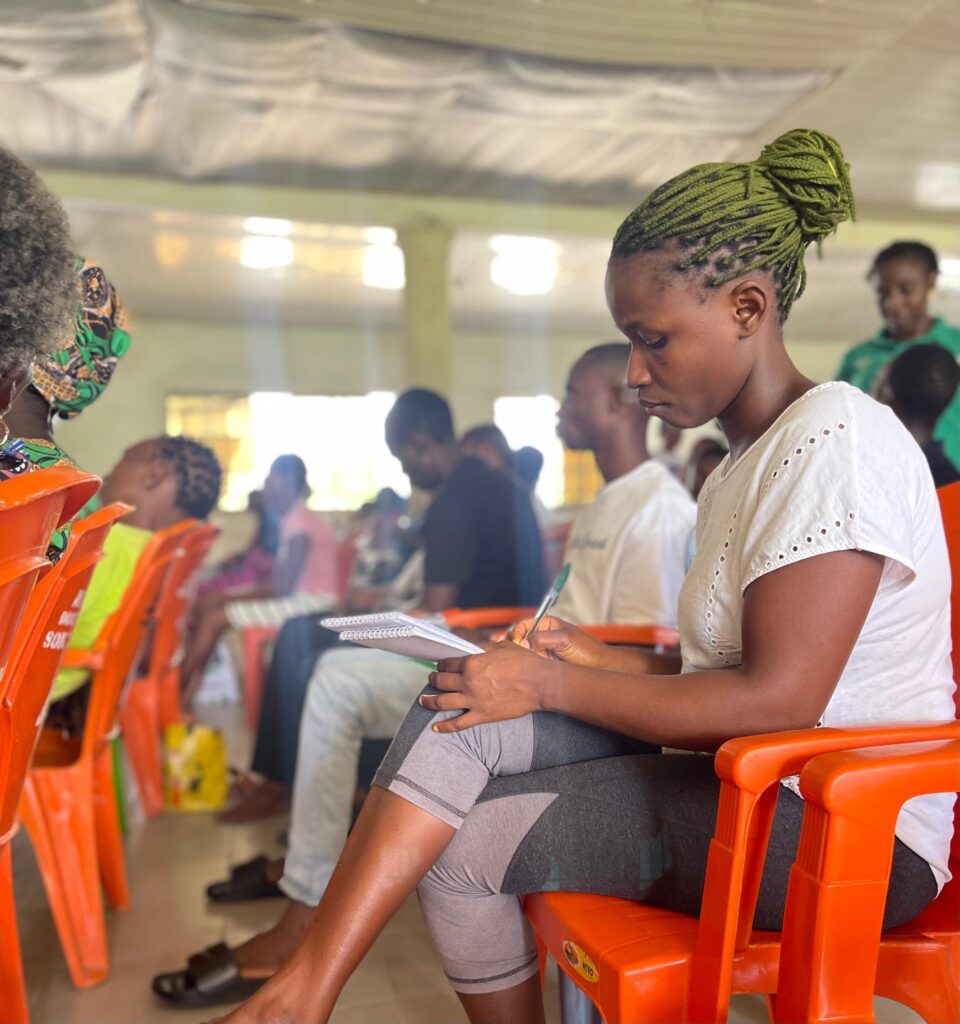
Mr. Obuza focused on identifying sustainable business opportunities within the green and blue economy, guiding participants through essential topics such as crafting eco-friendly products, record-keeping, and market linkage. He detailed ways to develop value chains that connect to finance and micro-grants, which are particularly critical for participants looking to scale their ventures. Sustainable fishery management, fish processing, and safety measures in artisanal fishing rounded off his session, offering participants practical tools to improve and sustain their livelihoods in a rapidly changing environment.
One of the highlights of the training was the active engagement of participants, who asked practical, insightful questions that demonstrated a keen interest in the topics discussed. Facilitators employed a dynamic teaching approach, blending pidgin English with Izon, the local dialect, to ensure accessibility and comprehension. This approach encouraged open dialogue, with participants eagerly sharing their views and personal experiences.
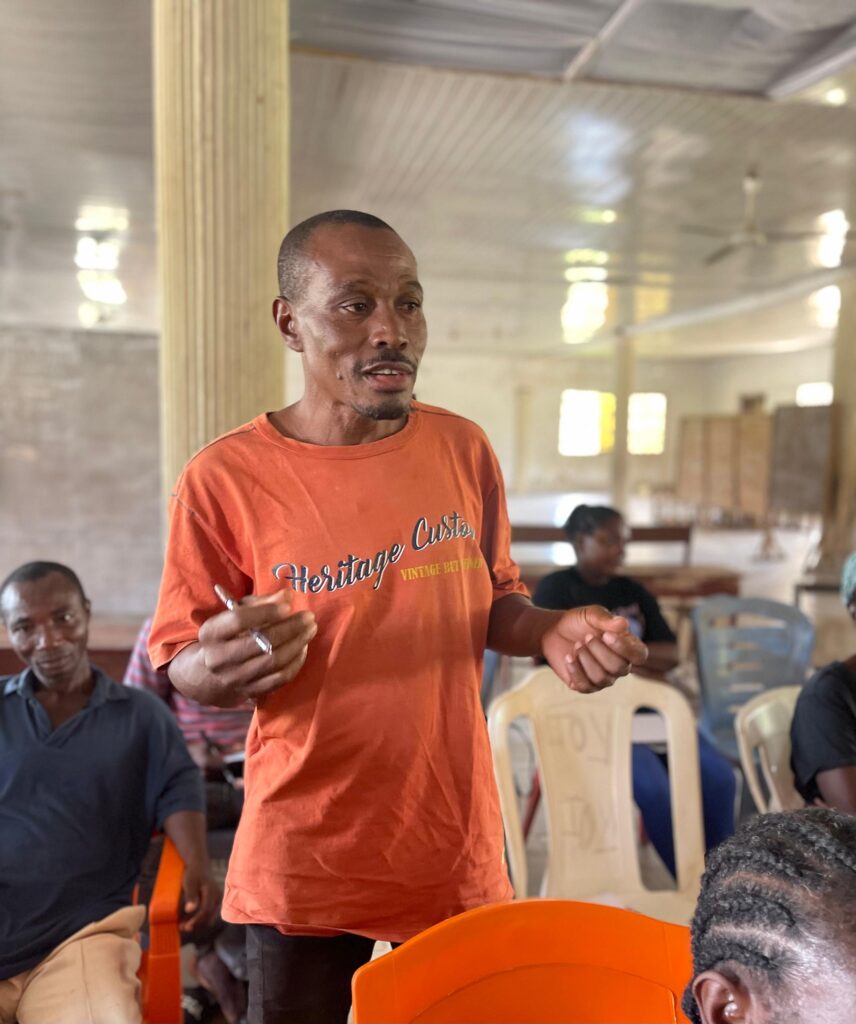
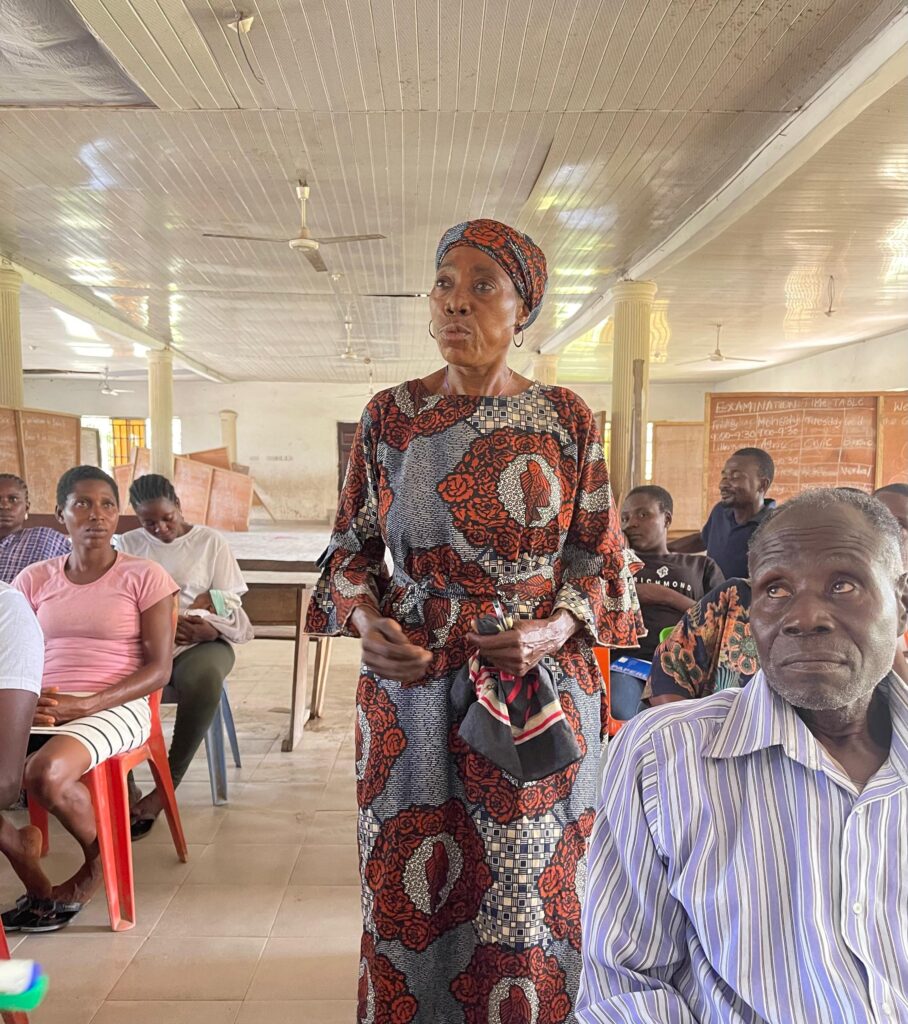
Participants making contributions during the sessions
During Dr. Benson’s session on biodiversity, participants voiced concerns about local wildlife extinction. They attributed the disappearance of big pythons, lions, elephants, bush goats and pigs, antelopes, and iguanas to deforestation and habitat loss, which has escalated over recent years. These discussions underscored the need for increased conservation efforts to prevent further biodiversity loss.
Mr. Utavie Jeremiah commended the active participation and commitment displayed by attendees while highlighting the critical importance of the day’s lessons. With a mix of theoretical knowledge and practical skills now in hand, participants left empowered to implement changes in their practices, ensuring a more sustainable future for their communities.
As the training continues, the focus remains on building a resilient framework for these communities, blending local knowledge with sustainable practices to safeguard livelihoods and foster environmental stewardship in the Niger Delta.


